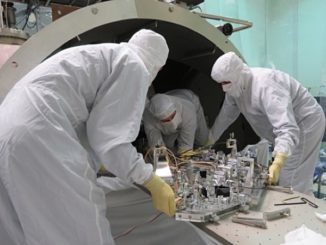
Laser Interferometer Gravitational-wave Observatory


LIGO resumes search for gravitational waves
After a series of upgrades, the twin detectors of LIGO, the Laser Interferometer Gravitational-wave Observatory, have turned back on and resumed their search for ripples in the fabric of space and time known as gravitational waves. Now boasting a 25 percent improvement in sensitivity, LIGO recommenced science observations at 4pm GMT on 30 November.
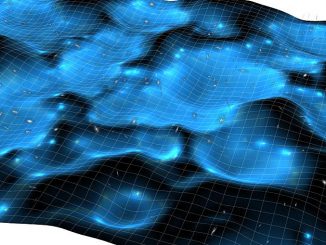
Scientists begin modelling universe with Einstein’s full theory of general relativity
Research teams on both sides of the Atlantic have ditched software approximations and found that small-scale structures produce important effects using new computer codes. Precise modelling of the cosmos using Einstein’s full theory of general relativity will change our detailed understanding of evolution in the universe and the growth of structure within it.
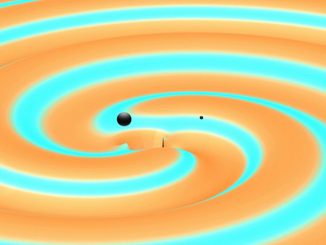
Did gravitational wave detector find dark matter?
A matter of scientific speculation since the 1930s, dark matter itself cannot yet be detected, but its gravitational effects can be. Now, eight scientists from Johns Hopkins University consider the possibility that the first black hole binary detected by LIGO could be part of this mysterious substance known to make up about 85 percent of the mass of the universe.
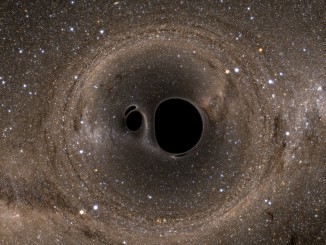
Gravitational waves detected from second pair of coalescing black holes
Three months after announcing the first detection of gravitational waves, scientists report a second observation of the merger of two black holes made on 26 December 2015. The scientists were able to infer that the mass of the black holes was between 8 and 14 solar masses and the event took place at a distance of about 1.4 billion light-years from Earth.
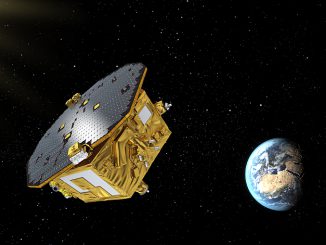
LISA Pathfinder success paves way for space-based gravitational wave detection
LISA Pathfinder, a mission led by the European Space Agency with contributions from NASA, has successfully tested key technology needed to build a space-based observatory for detecting gravitational waves. These tiny ripples in the fabric of space, predicted by Albert Einstein a century ago, were first seen last year by the ground-based Laser Interferometer Gravitational-Wave Observatory (LIGO).
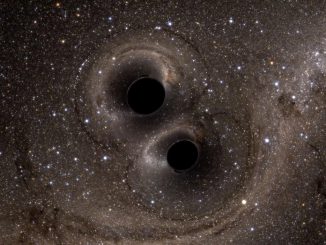
Possible link between primordial black holes and dark matter
Dark matter is a mysterious substance composing most of the material universe, now widely thought to be some form of massive exotic particle. An intriguing alternative view is that dark matter is made of black holes formed during the first second of our universe’s existence, known as primordial black holes.
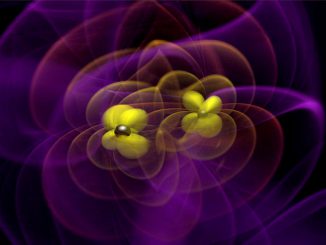
Gamma-ray space telescope poised to pin down gravitational wave sources
On 14 September 2015, gravitational waves produced by a pair of merging black holes gently rattled space-time in the vicinity of Earth. Less than half a second later, NASA’s Fermi Gamma-ray Space Telescope picked up a brief, weak burst of high-energy light consistent with the same part of the sky. Analysis of this burst suggests that the events are connected.
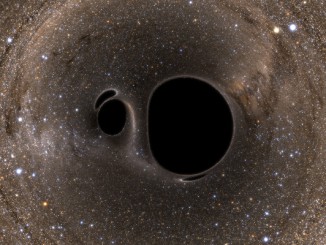
LIGO’s twin black holes might have been born inside a single star
On 14 September 2015, the Laser Interferometer Gravitational-wave Observatory (LIGO) detected gravitational waves from the merger of two black holes 29 and 36 times the mass of the Sun. New research suggests that the two black holes might have resided inside a single, massive star whose death generated a gamma-ray burst detected by the Fermi Space Telescope.

Scientists to provide update on the search for gravitational waves
This year marks the 100th anniversary of the first publication of Albert Einstein’s prediction of the existence of gravitational waves. With interest in this topic piqued by the centennial, researchers from UK universities in Glasgow, Birmingham, and Cardiff will discuss their ongoing efforts to observe and measure cosmic gravitational waves for scientific research in London on Thursday, 11 February.
